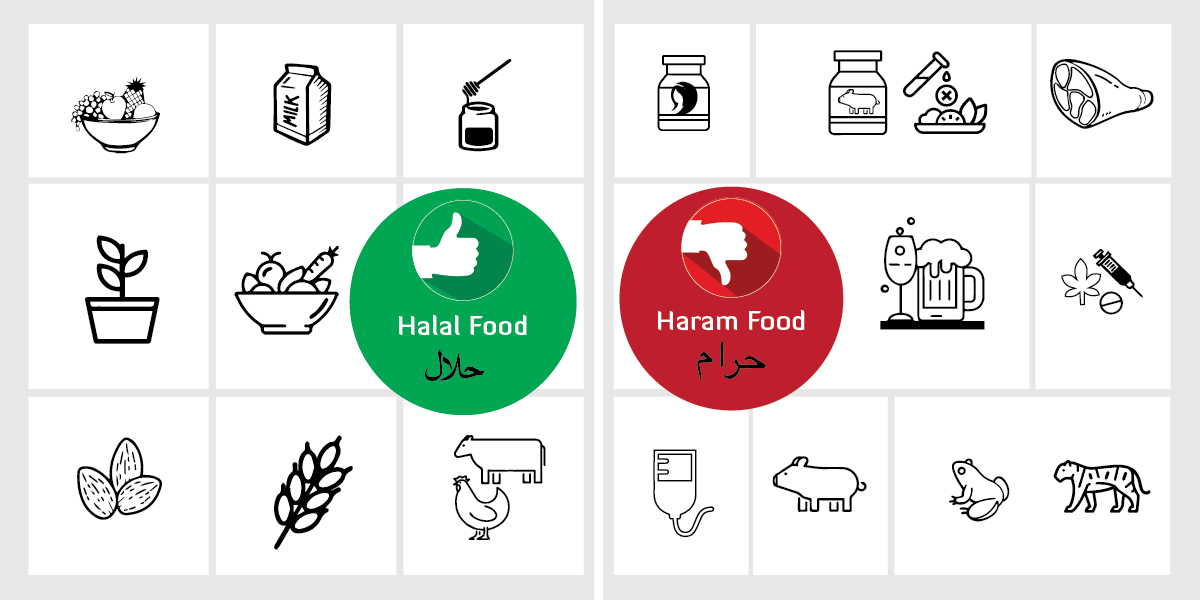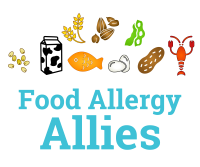Food allergies, food intolerances, and celiac disease may be the most obvious dietary restrictions, but there are many other sources of dietary restrictions. Today, we are going to take a look at dietary restrictions that are not medically necessary, but are rather chosen by the individual for religious or ethical purposes.
1. Kosher
Kosher is a term used to describe the foods that comply with traditional Jewish law. The kosher dietary restrictions are derived from the Torah, which is the holy text for the Jewish community. In order for a food to be kosher, it must meet the following rules:
- meat (mammals or birds) cannot be eaten or served with a dairy product
- all utensils used to handle meat and dairy must be kept separate
- A certain amount of time must be waited in between consuming meat and dairy
- Any meat consumed must come from ruminant animals with split hooves (cows, sheep, lambs, goats, oxen, and deer) or from certain birds (chicken, geese, quail, dove, and turkey)
- All meat consumed must come from the forequarters of these permitted animals
- The animal eaten must be slaughtered by a person trained and certified to butcher animals according to Jewish laws
- The meat must be soaked in order to remove all traces of blood
- Meat from pigs, rabbits, squirrels, camels, kangaroos, horses, eagles, owls, gulls, hawks, or the hindquarters of an animal is not permitted
- Dairy products must come from a permitted animal and may not be mixed with any meat-based derivatives
- Any fish consumed must come from an fish that has fins and scales (shrimp, crabs, oysters, lobster, and other shellfish are not allowed)
As you can see, adhering to a kosher diet requires careful avoidance and preparation of certain foods. While this is just a brief summary of the details of the kosher guidelines (which vary depending on the level of orthodoxy of an individual and during special Jewish holidays such as Passover), it is important to remember the religious significance of the kosher diet even if it is not medically necessary.
:max_bytes(150000):strip_icc()/introduction-to-kosher-food-2122519_FINAL-5baa4282c9e77c00259399e2.png)
2. Halal
Halal is a term used to describe food that complies with traditional Islamic law derived from the Qur’an, or Muslim sacred text. The opposite of halal is haram, which refers to food that is considered unlawful and forbidden. In general, every food is considered halal, or acceptable, by Muslims unless it is specifically prohibited by a holy text. Forbidden foods (haram) include alcohol, non-halal animal fat, certain enzymes, most gelatin, lard, non-halal animal shortening, pork and any pig products, stock, carnivorous animals, birds of prey, or any foods contaminated with the foods previously listed. In addition to avoiding certain foods, acceptable foods are required to be prepared in a special manner and all animals consumed must be slaughtered in a dedicated, humane ritual. In conclusion, a halal diet is a religious dietary restriction that is practiced by many Muslims.

3. Veganism/Vegetarianism
Veganism is the practice of avoiding all animal products, including meat, dairy, eggs, honey, fish, leather, and any other food, clothing, or product that comes from an animal. Jainism is a religion characterized by an extreme emphasis on avoiding violence, and Jainism calls for veganism. Additionally, many other religions such as Buddhism or Hinduism call for partial veganism. Vegetarianism is similar to veganism in that both involve avoiding animal products, but vegetarianism allows animal products that do not result in the death of an animal, such as dairy, eggs, and honey. However, vegetarians still avoid all meat, including beef, fish, chicken, fowl, and pork. Veganism and vegetarianism are not medically necessary, but people who chose to adhere to these diets typically do so for reasons such as ethics, health, sustainability, or religion.

4. Ayurveda
Ayurveda is a term used to refer to the ancient Hindu system of nutrition and medicine derived from the Vedas, or the Hindu sacred scriptures. While the Ayurvedic diet is not strictly required by Hinduism, it is seen as a recommendation in order to more closely follow the Hindu faith. Beyond food, Ayurveda is commonly associated with yoga, alternative medicine, and a holistic lifestyle. The Ayurvedic diet is highly personalized to each person, and recommends specific food groups to certain people. According to Ayurveda, five elements make up the universe: air, water, space, fire, and earth. These elements are said to form three different doshas, or types of energy that correspond to a specific physiological function such as hunger or movement. The Ayurvedic diet is based on eating foods that promote balance between all three doshas. While some individuals may choose to follow an Ayurvedic diet for health reasons, many follow this diet to deepen their spirituality and promote mindfulness.

5. Lent
Lent is a term that refers to a period of time during the Catholic calendar that occurs for the weeks in spring leading up to Easter. During Lent, Catholics are required to follow certain dietary restrictions, such as fasting on specific holy days and avoiding meat on Fridays. The fasting laws apply to any Catholic between the ages of 18 to 59, and the rules regarding avoidance of meat on Fridays apply to any Catholic older than 14 (acceptations to all dietary restrictions are made if someone is in poor health). While fasting and avoiding meat are examples of Catholic dietary restrictions, these rules are seasonal and do not apply outside the time period of Lent.

Kosher, Halal, vegan, vegetarian, and Ayurvedic diets are all forms of religious dietary restrictions to varying degrees. While Kosher and Halal are both dictated by strict, official laws, other examples of religious dietary restrictions may be more subjective, such as Ayurveda. Others, such as veganism and vegetarianism may not always be followed for religious purposes, but rather for other purposes such as health or personal ethics. Still others, such as Catholic Lenten fasting requirements, may be seasonal instead of regular. Above all, it is important to validate and accommodate any dietary restriction, even if it is not medically necessary, because such practices can have a deeper, religious significance beyond the food itself.
Article sources:
https://www.healthline.com/nutrition/what-is-kosher#bottom-line
https://www.healthline.com/nutrition/what-is-a-vegan#rationale
https://www.healthline.com/nutrition/ayurvedic-diet#foods-to-eat
http://www.icv.org.au/about/about-islam-overview/what-is-halal-a-guide-for-non-muslims/
https://oukosher.org/the-kosher-primer/
DISCLAIMER: This article is not written by someone who is Jewish, Muslim, or Hindu, so it is not intended to be a substitute for the knowledge of an experienced religious leader.

